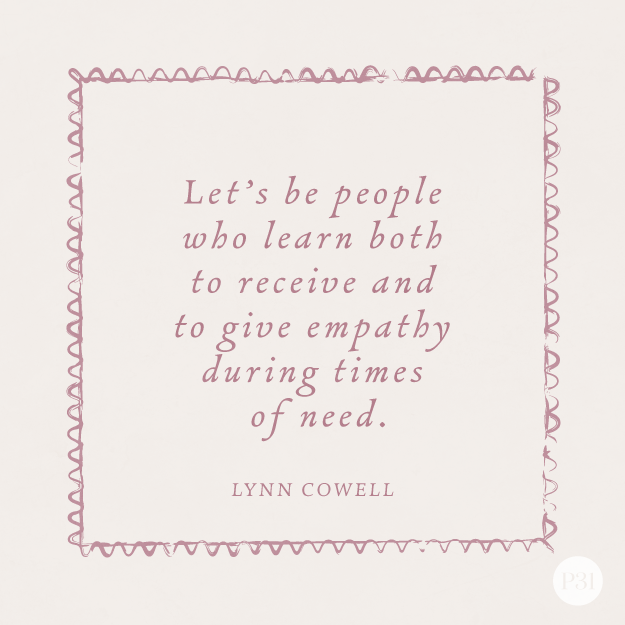
“a time to weep and a time to laugh, a time to mourn and a time to dance …” Ecclesiastes 3:4 (NIV)

Have you ever noticed the various reactions and responses you encounter when you’re hurting?
This past year, my family went through a season of suffering. During this heartbreaking time, I reached out to those who love me to ask them to pray for me and help carry our heavy burden.
As I shared our story with friends, I received very different responses.
One friend immediately began to weep, embracing me. Brokenhearted for us, she wept with me. Yes, she eventually encouraged me to trust God and forgive, but her first response was to cry with me. Just months prior, we had experienced “a time to laugh … and a time to dance” together. Now she entered into “a time to weep … a time to mourn” with me (Ecclesiastes 3:4).
Another friend, while her heart was in a good place, skipped the grieving, heading straight to encouragement. Her words, while true and even scriptural, were untimely and landed painfully in my heart.
Sometimes when a person we love comes to us in pain, I wonder if, as Jesus followers, we think we must immediately express faith for healing, belief for restoration, or hope for the future — and if we don’t, we’re demonstrating a lack of faith, belief and hope. Or maybe we lean into the concept of “good vibes only,” attempting to help those grieving not to get stuck in negativity.
Yet Scripture tells us in Ecclesiastes 3:1, “There is a time for everything, and a season for every activity under the heavens” (NIV). One of these seasons and times is “a time to weep … a time to mourn” (Ecclesiastes 3:4).
Jesus Himself demonstrated so beautifully how to enter into grieving and lamenting with those who are hurting. When His friend Lazarus died, Jesus went to mourn with Lazarus’ family and community, and John 11:33 tells us His reaction upon approaching Lazarus' sister Mary:
“When Jesus saw her weeping, and the Jews who had come along with her also weeping, he was deeply moved in spirit and troubled” (NIV).
Jesus allowed Mary’s pain to impact Him. He was moved, even troubled. He wept (John 11:35). His expression of emotion didn’t indicate a lack of faith; He knew He would raise His friend from the dead (John 11:44). Jesus had faith and He lamented. He wept, hurt and felt for His friends.
Here is something I’m learning in my hurting season: To truly care for those I love is going to cost me something. It may cost my own heart hurting as I grieve with them. It may cost time as I sit with them in their pain. I may sacrifice financially as I give a gift or travel to be with them.
When we’re grieving and in pain, we need support and empathy from family and friends. When those around us are hurting, they need support and empathy as well. Let’s be people who learn both to receive and to give during times of need.
Jesus, help us to see the hurting, and guide us to respond in ways that are truly comforting. In Jesus’ Name, Amen.
We all have a story to tell, but knowing how to share what God has done in our lives in a way that will glorify Him and impact the hearts of others can be challenging. That’s why we created “How To Share Your Story,” a free resource to help you overcome your fear of being transparent and vulnerable — our five-step process can help you start writing about the transformation you’ve experienced in a way readers can relate to. Click here to download for free today!

Study with us how to respond to grieving in a more Christlike way in Lynn Cowell’s Bible study Esther: Seeing Our Invisible God in an Uncertain World. Order your copy here.
Download Lynn’s FREE resource “10 Ways to Help Someone Who’s Grieving” here.
Hebrews 4:15, “For we do not have a high priest who is unable to empathize with our weaknesses, but we have one who has been tempted in every way, just as we are—yet he did not sin” (NIV).
Read Matthew 26:36-46, which tells us how Jesus wrestled with grief in Gethsemane. Why might God have allowed Jesus to agonize in grief?
How can we receive comfort from the fact that Jesus is acquainted with grief? Share your thoughts with us in the comments!
© 2024 by Lynn Cowell. All rights reserved.
Join the Conversation